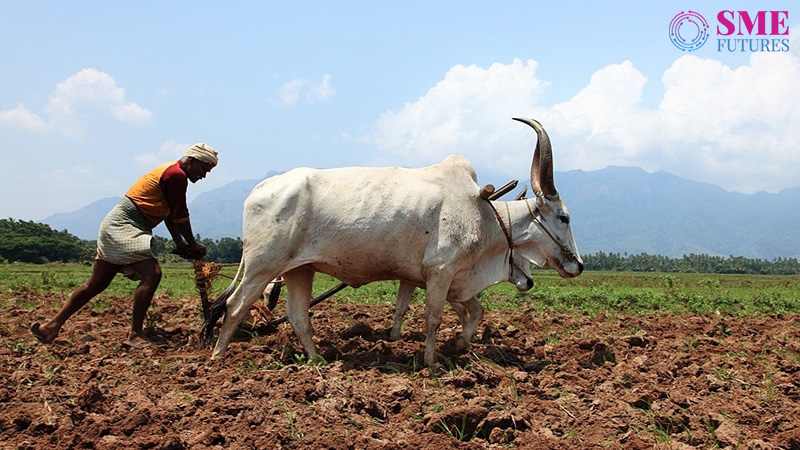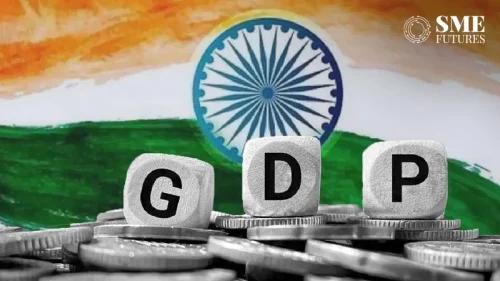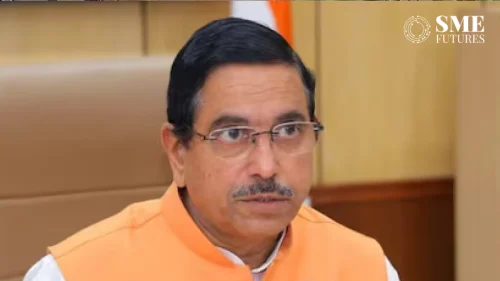The average income of farmers is miserably low compared with other persons engaged in the industry and services. This is due to the low sale price at the farm gate and the surplus production of food grains. There is perennial distress among the farmers causing suicides and agitations. If the entire food grain is sold at “Minimum support price” (MSP), the farmer’s distress can be resolved to a large extent.
Agro input subsidies reduce the production cost, but their benefits are passed on to consumers and not to farmers in the true sense.
“Kissan Samman Nidhi” could be an interim relief but not a permanent solution. A sustainable sale price of Agro produce is the right choice. For which, MSP must be ensured to all farmers through appropriate policy. The moot question is; whether the “Guaranteed MSP” is feasible considering the fiscal constraints? If not, how to resolve it? For perishable Agro-produce, a separate policy is needed, which is not discussed here.
In FY-2020,Government had procured barely 26% (by value) food grain(23 eligible crops)under MSP. This might be below 15% of all crops. With such low-level procurement, an unsold stock with FCI is about 32.0 million tons and 24.0 million tons with states. The debt of FCI has also exceeded Rs. 4.0 lakh crores incurring huge interest and storage cost. Therefore, it is not feasible for the government to buy the entire production.
Unlike an industrial product, food grain’s production and marketing cycle is very long. It is produced 1-3 times a year and consumed throughout the year. Hence, it must be stored during crop arrival season and then sold in the elongated period. India must develop food processing industries and trade channels for procurement during the crop arrival season, considering such a long cycle. Due to the bulk arrival of the crop in the season, the market price shall remain lower, which may cause exploitation of farmers by these private channels. Therefore, alone legal binding of MSP on the trade channel might be an incomplete and unviable solution. Considering the complexity, India needs an “out of box idea”. The farmers will get MSP, and the fiscal and debt burden on Government and FCI shall also reduce except during the initial years.
- FCI must assist farmers with such sales to private channels through auction. The floor price must be kept at 93-95% of MSP. FCI should fix quality standards and provide a testing facility to avoid any arbitrary deduction on the quality ground by the purchaser.
- FCI must essentially store unsold stock, and a “Goods receipt”(GR) may be issued to the farmer mentioning the quantity, quality and loan amount. The validity period of such GR maybe 5-6 months. FCI must extend loans to farmers up to 90% of the stock value at MSP price. Banks can refinance the same to FCI at an SLR rate. In the absence of such a stocking facility, the farmer is compelled to sell its produce at distress price to trade channel. This is the key recommendation.
- GR must be transferable and tradable in the open market, e-NAM and Commodity exchange. For this, FCI must assist and charge a nominal fee of 0.5% of the sale value. The interest and storage charges may be levied a maximum of 9% per annum on the stock value, which may be recovered from the ultimate buyer during the delivery of goods. Balance money may be remitted to farmers. This will eliminate the interest and storage cost of FCI.
- In general, the food grain price increases until the next crop arrives in Mandis. Thus, the farmers shall get the remunerative price after storage, as normally done by the trade channel. With the prior consent of farmers, FCI may also purchase the stock at MSP as per the needs of the PDS scheme. FCI doesn’t need separate buffer stock, as is being done now. Hence, it will reduce the debt burden on FCI.
- In case farmers do not sell the stock within the validity period of GR, they shall lose selling rights, and it shall be deemed sale to FCI at MSP. Immediately after the expiry of the validity of GR, FCI shall remit balance money after adjusting debt, interest and storage charges.
- The farmers might get about 95% of MSP with the above arrangements. Hence, MSP may be increased by 5-7%. After one or two years, there are bright chances for getting the higher price to farmers. FCI shall also be benefited since; its debt burden and storage cost shall reduce. Rather, it might earn gross profit in future years.
For availing benefit by all farmers across the nation, FCI should increase the network of Mandis and storage capacity. It should also build marketing infrastructures. More so, it must disseminate market information to farmers.
Intermittently, the stock with FCI might increase due to excess production or poor market demand. FCI must quickly export directly or through trade channels in such a situation. The government must encourage export and be liberal for giving need-based export incentives to compensate the loss of FCI and trade channel and processing industries. By this, the debt of FCI shall reduce, and the storage capacity shall be available for the fresh arrival of the crop. More so, trade channels shall also participate.
The fiscal burden due to such export incentives may be gradually compensated by cutting down farm input subsidy, which is not retained with farmers but passed on to consumers.
Simultaneously, India must promote food grain processing industries near to FCI godown.FCI should share logistic infrastructure with processing industries and trade channels for exports and onward marketing. A team spirit between FCI, Government, Processing Industries, Traders, Exporters and Farmers will certainly deliver the desired outcome. The states should also join this team.
Currently, India must provide such relief to farmers and save them from prolonged suffering. Gradually, the production cost of Agro-produce must be reduced through investment in infrastructure and technology for protecting the consumers. Farmers may also be pursued for crop diversion, reducing Agro-imports and enhancing income.
India should also develop the entrepreneurial skills of farmers. A composite plan for five years will certainly resolve the farmer crisis, fetch ‘Rural prosperity’, and reduce ‘urban migration’. Thus it will be a win-win situation for all.










